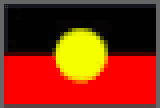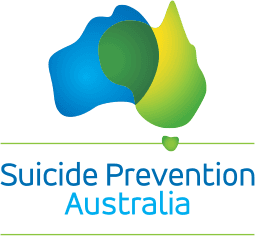Kessler Psychological Distress Scale K-10
Kessler Psychological Distress Scale K-10 overview
Creator and Context
The Kessler Psychological Distress Scale (K-10) is a simple, self-report questionnaire designed to measure the level of psychological distress an individual has experienced in the most recent 4-week period. It focuses on symptoms of anxiety and depression, assessing the severity of emotional states rather than diagnostic criteria. The K-10 was developed by Professor Ronald C. Kessler of Harvard University. Originally created for the US National Health Interview Survey, it has since gained widespread use in various settings for mental health screening.
Presenting Conditions
The K-10 is specifically designed to identify and quantify non-specific psychological distress. It focuses on symptoms associated with anxiety and depression, including feelings of nervousness, hopelessness, restlessness, depression, and worthlessness.
Administration
The K-10 is a self-administered questionnaire consisting of 10 questions. Respondents rate the frequency of experiencing specific symptoms over the past 4 weeks on a 5-point scale, ranging from 'none of the time' to 'all of the time'.
Desired Audience
The K-10 is suitable for use in the general adult population, including in primary care, community surveys, and research settings.
The K-10 is often used as an initial screening tool to identify individuals who may require further psychological assessment. It is valuable in epidemiological studies and in primary care settings as a screening tool for distress.
Considerations
The K-10 is a screening tool, not a diagnostic instrument.
Cultural factors can influence responses.
It should be used as part of a broader assessment.
How to score the Kessler Psychological Distress Scale K-10
Conducting the assessment
Respondents complete the K-10 by indicating the frequency of experiencing each of the 10 symptoms over the past 4 weeks, using a 5-point scale. The assessment typically takes less than 5 minutes to complete.
Interpretation
Scores for each item are summed, resulting in a total score ranging from 10 to 50. Higher scores indicate greater levels of distress. The scale has established cut-off points to indicate mild, moderate, and severe levels of distress.
Scores of 10-19 suggest mild distress.
Scores of 20-24 suggest moderate distress.
Scores of 25-29 suggest severe distress.
Scores of 30-50 indicate very severe distress.
Clinical Considerations
Use the K-10 as a preliminary screening tool to identify individuals who may benefit from further mental health evaluation.
Consider the individual’s overall context and other psychosocial factors.
Regular administration can be useful in tracking changes in distress over time.
Kessler Psychological Distress Scale K-10 use cases
Screening for psychological distress in primary care settings.
Population-based surveys and epidemiological research.
Monitoring mental health in workplace settings.
Category
Anxiety
Research Summary
Kessler, R. C., Andrews, G., Colpe, L. J., et al. (2002). Short screening scales to monitor population prevalences and trends in non-specific psychological distress. Psychological Medicine, 32(6), 959-976.
Furukawa, T. A., Kessler, R. C., Slade, T., & Andrews, G. (2003). The performance of the K6 and K10 screening scales for psychological distress in the Australian National Survey of Mental Health and Well-Being. Psychological Medicine, 33(2), 357-362.
Andrews, G., & Slade, T. (2001). Interpreting scores on the Kessler Psychological Distress Scale (K10). Australian and New Zealand Journal of Public Health, 25(6), 494-497.
Other Assessment Guides
Clinical Outcomes in Routine Evaluation 10 CORE-10
Explore the Clinical Outcomes in Routine Evaluation 10 (CORE-10), an efficient tool for assessing and monitoring psychological distress. Ideal for clinicians and researchers, this guide covers its use in screening, tracking treatment progress, and evaluating therapy effectiveness.
Depression Anxiety Stress Scales DASS-21
Explore the Depression Anxiety Stress Scales (DASS-21) in our comprehensive guide. Learn about its creation, use in assessing emotional states, practical application, scoring, and clinical guidance. Ideal for professionals seeking a detailed understanding of DASS-21's role in mental health assessment
Generalized Anxiety Disorder 7 Item Scale GAD-7
Explore the Generalized Anxiety Disorder 7 Item Scale (GAD-7), a vital tool for screening and measuring anxiety severity. Our guide covers its use, scoring system, and clinical implications, ideal for healthcare professionals and researchers in mental health.










